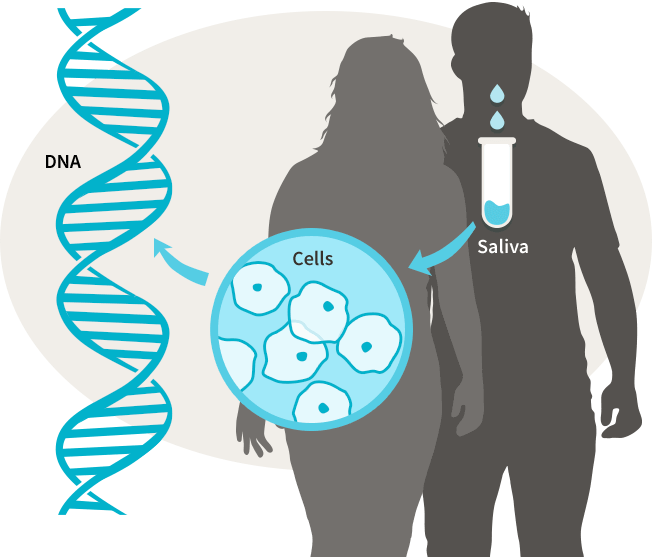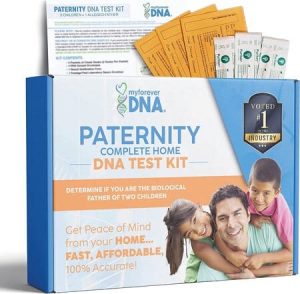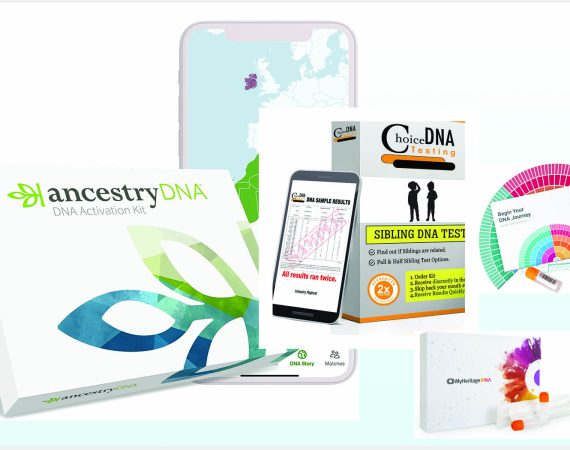DNA Testing: Get Tested and Analyze Your DNA Today!
Introduction to Genetic Testing
Discover Your DNA’s Secrets with Genetic Testing Welcome to the fascinating world of genetic testing, where you can uncover a wealth of information hidden in your DNA. Genetic testing involves analyzing your unique DNA composition to reveal specific details about your genes and chromosomes. This process has great potential for shedding light on your health and ancestry. With different genetic tests available, each serving its purpose, let’s explore the essentials.
Understand the Basics:
- Genetic testing allows us to examine our DNA for specific variations or mutations that may affect certain conditions or traits.
- It is important to note that while genetic tests cannot definitively predict future diseases, they provide valuable insights into an individual’s risk based on their genetics.
Explore Different Types of Genetic Tests:
Ancestry Testing:
Embark on a journey as these tests uncover your ethnic origins and trace ancestral migration patterns throughout history. – Health-Related Testing: Gain a deep understanding by analyzing genes associated with specific health conditions or traits, offering valuable insights into potential risks.
Carrier Screening:
Discover if you carry gene mutations that could be passed down to future generations through this type of test. By embracing genetic testing, you embark on a remarkable journey toward self-discovery at its deepest level. Join me as we delve further into knowledge in the following sections!

Benefits of Genetic Testing
Discover the power of genetic testing and unlock the secrets of your DNA. Gain valuable insights into your health and embark on a journey of self-discovery. Here are compelling reasons why genetic testing is essential:
Uncover Your Ancestral Roots:
Genetic testing accurately reveals your ancestry, tracing migration patterns throughout history and connecting you with long-lost relatives.
Stay Ahead in Health:
Identify potential health risks before symptoms appear by analyzing specific genes associated with cancer or cardiovascular disorders.
Personalized Decision-Making:
Use personalized insights from your genetic test results to make informed decisions about lifestyle choices and medical treatments tailored to your unique genetic makeup.
Plan for Future Generations:
Understand inherited conditions or carrier status for certain diseases, helping you make educated choices about family planning and consider potential risks for children’s health.
Revolutionize Medicine Just For You:
Pharmacogenomic testing allows healthcare providers to develop personalized treatment plans based on an individual’s genetic profile, improving therapeutic outcomes.
Approach genetic testing responsibly and seek professional guidance when interpreting complex findings related to specific genes. Embrace the power of genetic testing today for improved well-being and open doors to possibilities hidden within your DNA code. (Eileen Mignoni)
Choosing the Right Genetic Test

Choose the proper genetic test to unlock your DNA secrets. Find accurate and meaningful results with my guidance.
- Determine Your Purpose: Reflect on why you want genetic testing. Are you curious about ancestry or potential health issues? Identify your purpose in choosing the best test.
- Explore Different Types of Tests: Genetic tests exist for different purposes. Please familiarize yourself with them before making a choice.
- Consider Direct-to-Consumer vs. Clinical Tests: Choose between direct-to-consumer (DTC) tests done at home and clinical tests conducted in certified labs by professionals. DTC tests have limitations in accuracy and interpretation.
- Evaluate Accuracy and Reliability: Select a provider recognized within the scientific community for credibility, adhering to established standards.
- Protect Your Privacy: Choose a company with robust privacy policies that safeguard your data from unauthorized access or misuse.
- Consider Cost: Genetic testing costs vary depending on the type and provider. Consider your budget while assessing the expected value from results.
- Seek Expert Guidance: Consult a genetic counselor or healthcare provider specialized in genetics for complex information interpretation. By considering these factors, confidently choose a genetic test that aligns with your goals, gives accurate results, and ensures privacy protection. Knowledge is power when unraveling DNA mysteries!
Understanding Your Ancestry through DNA Testing
Discover your ancestry using DNA testing and unlock hidden secrets. Dive into the world of ancestry DNA testing to trace your roots, reveal ethnic origins, connect with long-lost relatives, and explore historical migration patterns. While DNA testing provides valuable insights into our pasts, it’s essential to consider cultural traditions and personal experiences that shape our identities.
Exploring Health Risks with Genetic Testing
Uncover health risks through genetic testing: Revealing the secrets of your DNA. Genetic testing goes beyond tracing ancestry; it identifies potential risks by analyzing specific genes and detecting variations linked to various conditions or diseases.
Identify Health Risks:
Genetic tests can determine if you have an increased risk for cancers like breast, ovarian, or colorectal cancer.
- They can also detect genetic markers associated with cardiovascular diseases such as heart disease and stroke.
- Specific gene variants may indicate a higher likelihood of developing neurological disorders like Alzheimer’s or Parkinson’s disease.
Examples in Action:
- – Mutations in the BRCA1 and BRCA2 genes significantly raise the risk of breast and ovarian cancers.
- – Variations in the APOE gene are linked to a greater susceptibility to Alzheimer’s disease.
Knowledge Empowers:
While genetic testing provides valuable information about predispositions, it does not guarantee their development.
Importance of Knowing Your Risk:
- Early Detection: Recognizing heightened risks allows for proactive measures such as regular screenings or tailored preventive interventions.
- Informed Decision-Making: With knowledge about predispositions, you can make informed choices regarding lifestyle changes (e.g., diet and exercise) and medical treatments (e.g., medication options).
Seek Professional Guidance:
Accurate interpretation of complex test results requires expert guidance from healthcare providers specializing in genetics. Genetic counselors play a crucial role in helping individuals understand test result implications while addressing emotional or ethical considerations that may arise.
Insights for Future Generations:
Genetic testing illuminates your family’s health history, better understanding potential risks for future generations. This knowledge empowers informed decisions about family planning and reproductive choices. By exploring health risks through genetic testing, you gain deeper insight into your unique genetic makeup and how it may affect your overall well-being.
Remember, this information aims to equip you with the tools needed for proactive healthcare management, not to cause unnecessary worry.
Interpreting Genetic Test Results
As experts, we provide clear guidance on interpreting your genetic test results.
Statistical Probabilities:
Genetic test results are often statistical probabilities rather than definitive outcomes. Variants or mutations may indicate increased risk for a condition but do not guarantee its development.
Personal Context:
Consider personal context when interpreting genetic test results, including family history, lifestyle factors, and medical information. A positive result does not mean you will develop a condition if other factors are present.
Seek Professional Guidance:
While direct-to-consumer genetic testing companies provide detailed reports, seek guidance from healthcare providers or genetics specialists for comprehensive interpretation.
Complex Findings:
Some tests reveal complex findings requiring expert analysis due to the multifactorial nature or interactions between genes and environmental factors. Consult professionals for accurate comprehension of details.
Implications for Family Members:
Test results affect individuals being tested and family members with similar DNA profiles or inheritable conditions. Communicating sensitive information within families while respecting privacy is essential.
Supportive Resources:
Reputable testing providers offer resources like educational materials, online forums, or access to genetics counselors for comprehensively understanding test results.
Statistical Literacy:
Developing statistical literacy skills enhances the interpretation of genetic test results. Understanding odds ratios, relative risks, and population prevalence empowers informed decisions based on provided information.
Remember that interpreting genetic test results requires scientific knowledge and personal context.Seek professional guidance to comprehend complex findings and navigate potential implications for yourself and your family. Gain a deeper understanding of your genetics to make informed health decisions. Let us guide you with expertise and support through this transformative journey
Privacy Concerns in Genetic Testing
Ensure Privacy in Genetic Testing: Your Guide to Protecting Your DNA When it comes to genetic testing, privacy is a top concern for individuals seeking answers about their DNA. As experts in the field, we understand the importance of safeguarding your sensitive genomic information and ensuring you have complete control over its use. Reputable companies prioritize data security while providing valuable insights from aggregated datasets. Let us guide you through crucial privacy concerns in genetic testing:
- Data Security: Rest assured that reputable companies prioritize the security of your genetic information. They use advanced encryption methods and strict access controls to keep your data confidential and protected from unauthorized access.
- Anonymized Aggregated Data: Many genetic testing providers use aggregated data sets for groundbreaking research. Individual identities are removed, ensuring that findings cannot be traced to specific individuals.
- Informed Consent: Before undergoing genetic testing, carefully review the company’s privacy policy and terms of service. These documents outline how your personal information will be used and shared, giving you transparency and allowing informed consent.
- Opt-Out Options: Some companies offer opt-out options if you prefer not to have your anonymized data used for research or shared with third parties. Explore these options if maintaining control over your genomic information is crucial.
- HIPAA Compliance: Clinical genetic tests conducted by healthcare professionals adhere strictly to the Health Insurance Portability and Accountability Act (HIPAA) guidelines. This ensures that your personal health information remains secure throughout the process.
- Transparency: Reputable companies maintain transparent policies regarding customer DNA sample retention periods and whether they share them without explicit consent with external entities like law enforcement agencies or insurance providers. Remember thoroughly read a company’s privacy policy before selecting a provider for genetic testing services. By doing so, ensure that your privacy concerns are addressed and your genetic information remains secure throughout the process.
Ethical Considerations in Genetic Testing
Choose ethical paths for genetic testing: Genetic testing brings advancements and ethical concerns. Explore these concerns to navigate your DNA journey ethically and confidently.
- Prenatal Screening: Moral dilemmas arise in prenatal screening, which provides insights into a fetus’s health and risks for conditions or disorders. Reproductive choices and their impact on individuals and families are at stake.
- Preimplantation Diagnosis (PGD): PGD involves analyzing embryos created through IVF for specific genetic conditions before implantation. While it prevents hereditary diseases, concerns arise about selecting embryos based on desired traits.
- Disclosing Genetic Information: The debate continues about sharing genetic information with family members. Balancing preventive measures, interventions, individual autonomy, and privacy rights is crucial.
- Informed Consent: Obtaining informed consent is essential in any form of genetic testing. Individuals must fully understand the test’s purpose, outcomes, limitations, and implications before making a decision.
- Impact on Individuals and Society: Genetic testing affects family relationships and societal norms around identity and diversity. Responsible practitioners consider these broader impacts when engaging in genetic testing practices.
- Supporting Research Ethics: Researchers uphold high ethical standards by prioritizing participant privacy, informed consent, and responsible use of data. Open discussions with healthcare professionals or counselors can provide personalized guidance based on specific circumstances.
Remember, the knowledge gained through genetic testing is robust but requires thoughtful consideration of the ethical implications. Let’s embark on your DNA journey with integrity and understanding together.
Genetic Testing for Personalized Medicine
Experience the transformative power of genetic testing in personalized medicine. This groundbreaking advancement allows healthcare professionals to create tailored treatment plans based on individual DNA. Consider these essential points when exploring genetic testing:
- Enhanced Treatment Efficacy: Analyzing your DNA helps identify specific gene variations that impact medication response. Doctors can prescribe more effective drugs and avoid adverse reactions or limited efficacy.
- Precision Medication Selection: Pharmacogenomic testing uses genetics to guide medication selection, eliminating trial-and-error prescribing and reducing side effects.
- Tailored Dosage Adjustments: Genetic testing determines optimal medication dosage adjustments based on individual metabolism rates due to specific gene variants.
- Targeted Therapies: Genetic tests reveal mutations associated with diseases, allowing doctors to recommend targeted therapies addressing underlying causes at a molecular level.
- Proactive Prevention Strategies: Genetic testing provides insights into disease prevention strategies tailored to your genetic predispositions.
When considering genetic testing:
- Consult specialized healthcare providers
- Discuss potential benefits and limitations.
- Understand the implications of results on treatment options.
- Consider ethical and privacy concerns related to sharing genetic information. Personalized medicine is a frontier in healthcare that improves patient outcomes through targeted interventions.
Stay informed about advancements in this field and consult professionals for well-informed decisions regarding your health journey.
Resources for Genetic Testing
Trust reliable sources and esteemed companies to unlock hidden mysteries. Let me guide you on this journey of self-discovery. Here are some invaluable tools to navigate genetic testing:
Leading Research Institutions:
Renowned institutions conduct groundbreaking studies and offer genetic testing as part of their research programs. Look for ongoing trials or studies that align with your interests or health concerns.
Trusted Healthcare Providers:
Consult genetic counselors, medical geneticists, or primary care physicians to select the most suitable test for your unique needs and goals. Their expertise provides personalized guidance.
Direct-to-Consumer Pioneers:
Well-established companies specializing in accessible genetic testing kits offer convenience and affordability. Choose from various tests, including ancestry exploration, health-related screenings, and carrier assessments.
Informative Online Platforms:
Explore platforms that provide comprehensive information about different types of genetic tests available today. User reviews and rating help make informed decisions about the best company or test kit for you.
Genetic Counseling Excellence:
Certified genetic counselors interpret complex results and provide tailored recommendations based on your circumstances. They address any questions or concerns throughout your DNA journey.
Professional Organizations at Your Fingertips:
Stay updated on advancements in genetics by following organizations like ASHG or NSGC. They provide educational resources and ethical guidelines for well-informed exploration. Remember to meticulously research providers before selecting a genetic test. Look for scientific credentials, accreditation from regulatory bodies, privacy policies protecting data confidentiality, and transparent reporting of results. By effectively using these expert resources, you can embark on an exhilarating DNA journey that enriches your understanding while empowering you to make informed decisions about health and heritage. Let’s unlock the secrets within your genes together!
1. Ancestry exploration: DNA testing can provide valuable insights into one’s ancestry, helping individuals discover their ethnic origins and connect with distant relatives.
2. Health information: Some DNA tests offer health-related reports, providing information about genetic predispositions to certain diseases or conditions, enabling proactive healthcare decisions.
3. Personalized recommendations: With the help of DNA testing, individuals can receive personalized recommendations for diet, exercise routines, and lifestyle choices based on their genetic makeup.
4. Paternity verification: DNA testing is a reliable method for accurately determining paternity, which can be crucial in legal cases or in establishing familial relationships.Cons:
1. Privacy concerns: Sharing personal genetic data with companies raises privacy concerns as it may be used for purposes beyond the intended scope without explicit consent from the individual.
2. Limited accuracy: While advancements have improved accuracy over time, there are still limitations to the precision of some DNA tests due to variations in databases and interpretation algorithms.
3. Emotional impact: Discovering unexpected results, such as non-paternity events or unknown biological relatives, can have significant emotional consequences for individuals and families involved.
4. Ethical considerations: DNA testing raises ethical questions regarding potential discrimination based on genetic traits or misuse of sensitive information by employers or insurance companies.
Conclusion
Discover the secrets of your DNA with genetic testing and empower yourself. Gain insights into your health, ancestry, and well-being. Explore different types of tests like ancestry, health-related, and carrier screening to understand yourself on a molecular level. Genetic testing reveals your heritage and identifies potential health risks. Use this knowledge to take proactive steps for preventive care or lifestyle changes that improve quality of life. Choose the proper test based on your goals and preferences – direct-to-consumer or clinical – considering their pros and cons.





